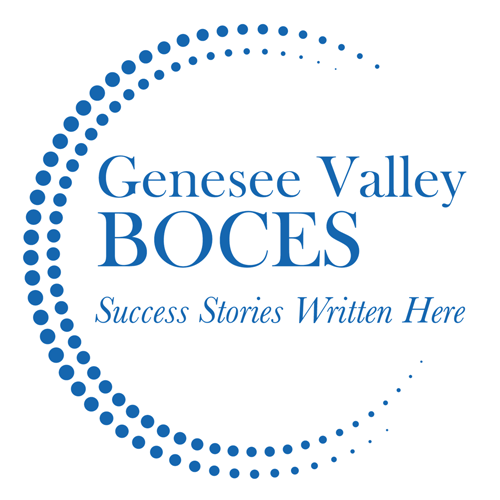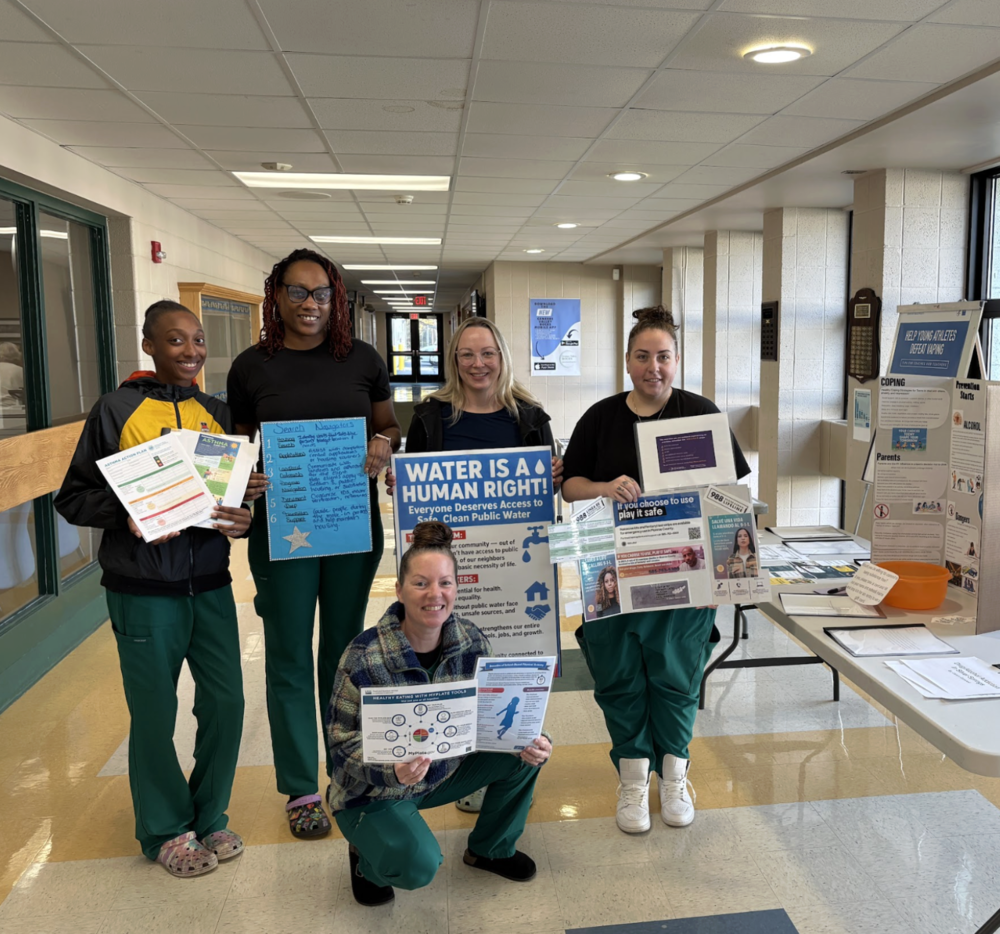At Genesee Valley BOCES, the Adult Education Licensed Practical Nursing program was more than a classroom experience — it was a journey of compassion, leadership, and personal growth. The culmination of that journey came through the LPN Capstone project, a meaningful assignment that connected classroom lessons with real-world issues and the hearts of the students who were preparing to enter the nursing field.
Instructor Janet Green described the capstone as “a way to show what they’ve learned throughout the year — not just in nursing skills, but in understanding community health.” Now in its third year, the project challenged students to research local issues, design real-world solutions, and recognize their potential as change-makers. “This was all part of what we call the community health section,” Green explained. “It covered disparities in health and access to care. They had to choose something in their own community and build a workable plan — complete with stakeholders, funding ideas, and evaluation strategies. It was truly their opportunity to see themselves as leaders.”
For many of the students, the project became deeply personal. Each capstone reflected their lived experiences and the challenges they saw around them — from substance use and pollution to the rising cost of housing and limited access to basic resources. Each display told a story of empathy, awareness, and hope, forming a striking exhibit that lined the hallways for classmates and visitors to see.
For Allison Budd, who had worked as a CNA for 11 years, her project on substance abuse in Monroe County was a reflection of what she had witnessed in healthcare and in her community. “It’s a big problem in Rochester,” Budd said. “I wanted to focus on something that affects so many lives, and part of that is access to naloxone boxes. Making them easier to find could save lives.” Her project emphasized prevention, awareness, and accessibility — a nurse’s way of extending help beyond the bedside. Budd said she wanted her capstone to remind people that addiction touches every family in some way. “We can’t always fix everything,” she said. “But we can make sure people have a fighting chance.” After graduation, Budd planned to continue that mission in a hospital burn unit, providing compassionate care to patients in crisis.
Stephanie Manchester drew inspiration from her rural community, where many families still lived without access to public water. Her capstone, “The Right for Public Water,” shed light on a hidden public health concern. “A lot of people in my area still don’t have public water,” Manchester said. “We got a grant for a sewer, which is great, but I kept thinking — water is essential. People don’t always know how to advocate for it, and it puts a real hardship on families. The state should be looking at what’s truly most important for people’s health.” Manchester, who had spent more than 20 years working as a CNA, said the experience reminded her that advocacy is a powerful part of nursing. “Sometimes being a nurse means speaking up,” she said. “We’re trained to care for others, but we also need to make sure their voices are heard.”
Nia Cooper chose to explore the impact of rising housing costs, an issue that hits close to home for many working families. She saw how financial strain could lead to health struggles, stress, and instability — issues she has witnessed in her work and community. “It’s hard to find affordable housing,” Cooper said. “If you don’t have a roof over your head, how can you focus on anything else? It affects mental health, family stability, everything.” Her project, which proposed a Search Navigator program to help residents find affordable housing, stemmed from her belief that access to safe housing is a foundation for good health. “Sometimes people give up because it’s so stressful,” she said. “Having someone walk beside them can make all the difference.”
Ayesha Lee brought a personal perspective to her project, “Asthma Prevention in Rochester.” She has lived with asthma since childhood and knew firsthand how the environment around her could affect her breathing. “In my old neighborhood, there was pollution, littering, and drug activity — all of that affects air quality,” Lee said. “When I researched, I found asthma is one of the top health issues in Rochester.” Her display included colorful visuals that helped families identify triggers and manage symptoms, using a red-yellow-green chart to show when care was needed. “The goal is to stay in the green zone,” she said. “When people understand their environment, they can take control of their health.” Lee said her project reminded her why she wanted to be a nurse in the first place — to help others live healthier, fuller lives.
For Julie Cordrey, a former military medic, the topic of obesity in Wyoming County reflected her lifelong interest in preventive care. “Half of us are inactive,” Cordrey said. “If we don’t teach our children to eat well and be active, we’re just passing the problem on.” Her project promoted community involvement and family-based wellness programs. “I wanted to focus on making health accessible,” she said. “If families can come together — to walk, exercise, or cook healthier meals — it can change lives and habits.” Cordrey’s military background gave her a unique perspective on structure, discipline, and teamwork, qualities she brought into her project and nursing practice.
When the class presented their capstones, the hallway came alive with color, statistics, and powerful personal messages. Each board represented not just research, but resilience. “We worked on these over five weeks,” Manchester said. “Each week, we built on what we learned — from picking a topic, to researching, to finding real data and creating solutions. By the end, it wasn’t just a project — it was a piece of who we are.”
Many students reflected on how their personal experiences shaped their understanding of healthcare and empathy. “The middle class is struggling,” Cooper said. “We make too much to qualify for help but not enough to survive. These projects gave us a chance to talk about those real issues.” As classmates discussed their topics and shared their stories, they found common ground in their desire to help others, to bring compassion to every patient they encounter, and to advocate for change where it’s needed most.
Green said the class was one of the most compassionate and professional groups she had ever taught. “They’re leaders, every one of them,” she said. “They took what they’ve seen in their own lives and turned it into advocacy. They care deeply — not just about nursing, but about people. This group supported one another and brought kindness to everything they did. They’re the kind of nurses who will make a difference the minute they walk into a room.”
The LPN program shared the same building as the high school CTE programs, allowing younger students to see the adult learners’ capstone displays in the hallway. Budd and Cordrey once attended the Batavia CTE Center themselves, where they first explored their interest in the nursing field. Years later, that same passion led them back to Genesee Valley BOCES to continue their journey through the LPN program. “It was a great opportunity for them to see that adult education happens right here,” Green said. “Our students graduated with professional licenses, ready to step into the workforce — and that visibility mattered.”
As the class reflected on their time together, the sense of pride and connection was unmistakable. “I love our class,” Budd said. “Everyone here is going to be a great nurse. We’ve lifted each other up every step of the way.” For Green, that bond represented everything she hoped the capstone would accomplish. “I hope they took away a sense of empowerment — that they can create change in their communities,” she said. “They are leaders, advocates, and healers. And I couldn’t be prouder.”

